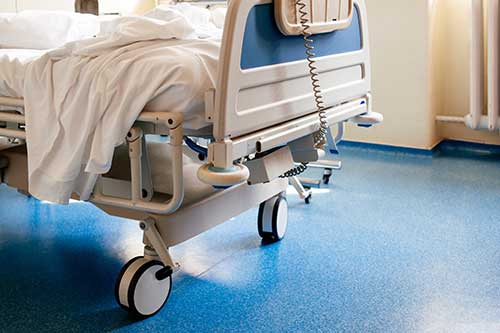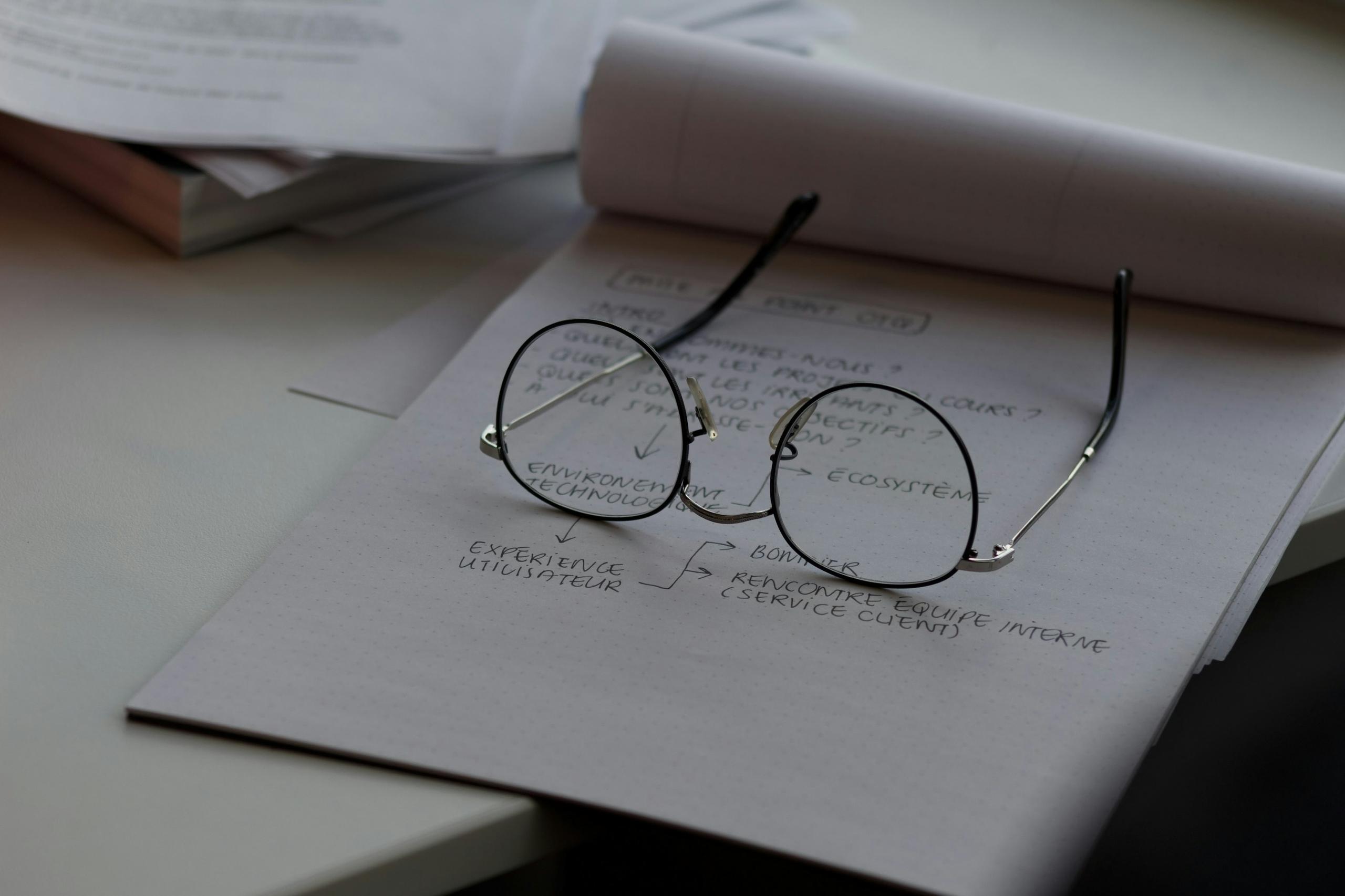Table of Contents
Trust PhillyLaw®, Philadelphia’s best personal injury lawyer for navigating personal injury claims. We understand that dealing with a personal injury claim can be an incredibly stressful and emotional experience. That’s why our Philadelphia personal injury lawyers treat each case with the utmost care and dedication, just as if you were a member of our own family. We are committed to providing personalized attention, comprehensive support, and high-quality legal representation to ensure you receive the justice and compensation you deserve.
Our Philadelphia Personal Injury Attorneys Have Decades of Experience
With decades of combined experience, our Philadelphia personal injury lawyers have successfully navigated the legal system to secure favorable outcomes for countless clients. Our seasoned team is well-versed in a variety of personal injury cases, including car accidents, slip-and-falls, medical malpractice claims, and more.
How a Philadelphia Personal Injury Lawyer at PhillyLaw Can Help Your Case
Navigating the aftermath of a personal injury can be overwhelming and stressful. A Philadelphia personal injury lawyer can provide the experience and support you need to effectively manage your claim and maximize your compensation. At PhillyLaw, our dedicated team understands the nuances of personal injury law and employs a strategic approach to every case we handle.
You Pay Our Fees on a Contingency Fee Basis
One of the primary concerns for many individuals considering legal action is the cost of hiring a personal injury lawyer. At PhillyLaw, we aim to alleviate this worry with our contingency fee arrangement. This means that our clients do not pay any upfront legal fees.
Instead, our payment is contingent upon successfully securing compensation for you. If we win your case, our fee is a percentage of the settlement or award obtained. If we do not secure compensation, you owe us nothing for our services.
Our Philadelphia Personal Injury Lawyers Complete a Thorough Investigation of Your Case
Our experienced personal injury lawyers conduct thorough investigations to uncover crucial evidence, such as medical records, accident reports, and witness statements, which are instrumental in building a compelling case. We collaborate with experts from various fields, including medical professionals and accident reconstruction specialists, to support your personal injury claims with substantive and objective insights.
Calculating damages in a personal injury claim involves a comprehensive assessment of both economic and non-economic losses.
Economic Damages
Economic damages encompass quantifiable losses such as medical expenses, lost wages, and future medical care. We will meticulously gather documentation like hospital bills, receipts for medical supplies, and proof of income to ensure no financial detail is overlooked.
Non-Economic Damages
Non-economic damages, which can be more subjective, include pain and suffering, emotional distress, and loss of enjoyment of life. We work closely with psychological experts and utilize proven methodologies to assign a monetary value to these intangible losses.
Our goal is to provide a well-rounded and accurate estimation of your total damages, which involves considering factors like the severity of your injury, long-term impact on your quality of life, and any potential for future complications. By doing so, we aim to secure a fair settlement or judgment that fully compensates you for all the harms you have endured.
Our Philadelphia Personal Injury Attorneys Are Skilled Negotiators and Will Handle the Insurance Claims Process for You
PhillyLaw’s personal injury lawyers are skilled negotiators who engage with insurance companies and other parties on your behalf to ensure fair settlements. We understand the tactics often employed by insurance adjusters to minimize payouts, and we are prepared to counter these efforts with strong, evidence-based arguments.
If We Cannot Settle Your Case, We Will Take It to Court
If a satisfactory settlement cannot be reached, our attorneys are prepared to take your personal injury lawsuit to court. With extensive trial experience, we advocate fiercely for your rights, presenting a persuasive case before the judge and jury.
Throughout the process, the PhillyLaw team remains committed to transparent communication and client empowerment. We provide regular updates on the progress of your case and ensure that you are informed and involved in every major decision.
What to Do if You Believe You Have a Personal Injury Case in Philadelphia
If you believe you have a personal injury case, it’s essential to take immediate and appropriate actions to protect your potential claim. Here are the steps you should follow:
-
Seek Medical Attention: Obtain medical care as soon as possible, even if your injuries seem minor. Proper medical documentation will serve as crucial evidence in your case.
-
Document the Incident: Gather comprehensive information about the incident, including taking photographs of the scene, your injuries, and any property damage. Collect contact information from witnesses and detailed notes about what happened.
-
Report the Incident: Depending on the situation, report the incident to the necessary authorities or parties. For example, notify your supervisor or HR department if it’s a workplace injury, or file a police report in cases of motor vehicle accidents.
-
Preserve Evidence: Keep any physical evidence related to your injury. This can include torn clothing, damaged personal items, or any other tangible items that might support your claim.
-
Avoid Making Statements: Be cautious about discussing the incident, especially on social media. Do not admit fault or make statements that could be used against you later.
-
Consult an Experienced Personal Injury Attorney: t PhillyLaw, we offer a free consultation where we can assess the merits of your case and provide guidance on the next steps. An experienced lawyer can help you navigate legal complexities and ensure your rights are protected.
-
Contact Your Insurance Company: Notify your insurer promptly and provide them with all relevant information. Your attorney can guide you through this communication to help safeguard your claim.
-
Follow Through with Medical Treatment: Adhere to your healthcare provider’s treatment plan and attend all follow-up appointments. Consistent medical care not only aids in your recovery but also strengthens your claim by showing a commitment to addressing your injuries.
-
Keep Detailed Records: Maintain thorough records of all related expenses, including medical bills, transportation costs, and any other financial impacts resulting from the injury. This will be crucial for calculating your damages.
By taking these steps, you can build a strong foundation for your personal injury case and improve your chances of a successful outcome. For expert guidance and dedicated legal support, contact a Philadelphia personal injury lawyer for a free consultation today.
Types of Personal Injury Cases We Handle
We are well-versed in the most common types of personal injury cases.
Car Accidents
Car accidents can result in devastating physical, emotional, and financial consequences for victims and their families. Whether caused by reckless driving, distracted driving, drunk driving, or poor road conditions, these motor vehicle accidents often lead to serious injuries or even fatalities. Victims may face mounting medical bills, rehabilitation costs, lost income, and emotional trauma.
Truck Accidents
Truck accidents can result in catastrophic injuries and significant property damage due to the sheer size and weight of commercial trucks. Factors such as driver fatigue, improper maintenance, overloaded trucks, and reckless driving can contribute to these serious accidents. Victims of truck accidents often face a long road to recovery, with extensive medical treatments, rehabilitation, and potential long-term disabilities.
Motorcycle Accidents
Motorcycle accidents can result in severe injuries and significant financial burdens due to the lack of protection for riders. Common injuries associated with these accidents include traumatic brain injuries, spinal cord injuries, fractures, and road rash, all of which can lead to long-term or permanent physical impairment. Additionally, the emotional impact of such traumatic events often includes anxiety, depression, and post-traumatic stress.
Medical Malpractice
Medical malpractice occurs when a healthcare professional or institution fails to provide the standard level of care, resulting in harm to a patient. These cases can arise from various situations, including misdiagnosis, surgical errors, medication mistakes, birth injuries, and inadequate follow-up care. The consequences of medical malpractice can be devastating, leading to severe physical injuries, prolonged suffering, and even death.
Slip-and-Fall Accidents
Slip-and-fall accidents or trip-and-fall accidents are common causes of personal injury, often resulting from hazardous conditions such as wet floors, uneven pavements, poor lighting, or cluttered walkways. These accidents can lead to serious injuries, including fractures, sprains, head injuries, and back injuries, which may require extensive medical treatment and rehabilitation.
Pedestrian Accidents
Pedestrian accidents are a grave and all-too-common occurrence, often resulting in severe injuries or even fatalities due to the vulnerability of individuals on foot. These accidents can occur in various settings, including crosswalks, sidewalks, parking lots, and residential areas. Factors contributing to pedestrian accidents may include distracted driving, speeding, failure to yield, and poor visibility.
Victims may suffer from a range of injuries such as broken bones, head trauma, spinal cord injuries, and more, leading to extensive medical treatment and significant emotional distress.
SEPTA Accidents
Public transportation systems like the Southeastern Pennsylvania Transportation Authority (SEPTA) play a crucial role in the daily lives of many residents in Philadelphia and the surrounding areas. However, accidents involving SEPTA buses, trolleys, trains, and subways can and do happen, often resulting in serious injuries to passengers, pedestrians, and other motorists. Common causes of SEPTA accidents include operator negligence, inadequate maintenance of vehicles and infrastructure, mechanical failures, and unsafe conditions at transit stations.
Bicycle Accidents
Bicycle accidents can have catastrophic consequences, often resulting in serious injuries due to the minimal protection afforded to cyclists. With the increasing number of people choosing cycling for transportation, exercise, and recreation, the risk of collisions with motor vehicles has also risen. Common injuries from bicycle accidents include head trauma, spinal cord injuries, fractures, and extensive abrasions, all of which may require prolonged medical treatment and rehabilitation.
Types of Injuries
Some of the most common injuries people sue for in a personal injury case include:
Wrongful Death
Losing a loved one due to someone else’s negligence or wrongful actions is an unimaginable tragedy, leaving families devastated both emotionally and financially. Wrongful death claims are filed to seek justice and hold the responsible parties accountable for their actions. These claims can arise from various circumstances, including medical malpractice claims, car accidents, defective products, workplace accidents, and more.
Brain Injuries
Brain injuries can have life-altering consequences, affecting every aspect of a person’s life, from their physical abilities to their cognitive functions and emotional well-being. These injuries often result from traumatic events such as car accidents, falls, sports injuries, or violent assaults. The impact of a brain injury can be devastating, leading to prolonged medical treatments, rehabilitation, and potential long-term disabilities that require ongoing care and support.
Spinal Cord Injuries
Spinal cord injuries (SCI) are among the most devastating types of injuries, often resulting in permanent disability and a profound impact on the quality of life for victims and their families. Various incidents, including car accidents, falls, sports injuries, and acts of violence, can cause these injuries. The severity of a spinal cord injury can range from partial damage, which may result in some loss of function and sensation, to complete damage, leading to total loss of function below the site of injury.
Birth Injuries
Birth injuries occur when a newborn suffers harm due to complications during the delivery process, often as a result of medical negligence or error. These injuries can have devastating and lifelong effects on both the child and the family. Common types of birth injuries include cerebral palsy, brachial plexus injuries, fractures, and brain damage caused by oxygen deprivation.
Catastrophic Injuries
Catastrophic injuries are life-altering events that inflict severe, long-term impacts on victims and their families. These injuries often result in significant physical, emotional, and financial burdens due to their extensive and often permanent nature.
Common examples of catastrophic injuries include traumatic brain injuries (TBI), severe burns, multiple fractures, amputations, and injuries leading to paralysis. Such injuries can occur from various incidents, including car accidents, workplace accidents, construction site accidents, and defective products.
Pennsylvania’s Statute of Limitations for Personal Injury Lawsuits
Understanding the statute of limitations is crucial when considering a personal injury lawsuit in Pennsylvania. The statute of limitations sets the timeframe within which you must file your lawsuit.
In Pennsylvania, the statute of limitations for personal injury cases is generally two years from the date of the injury. This means that if you fail to file your lawsuit within these two years, you may lose your right to pursue compensation for your injuries.
Some exceptions to this rule can alter the statute of limitations period. For instance, if the injured party is a minor, the statute of limitations does not begin to run until the individual turns eighteen. Additionally, in cases where the injury was not immediately discoverable, the “discovery rule” may apply, allowing the statute of limitations to begin from the date the injury was discovered or should reasonably have been discovered.
Understanding Modified Comparative Negligence in Pennsylvania
In Pennsylvania, modified comparative negligence plays a significant role in personal injury cases. This legal principle allows injured parties to recover damages even if they are partially at fault for the incident that led to their injuries. However, there are significant limitations to this rule.
Under Pennsylvania law, if you are found to be less than 51% at fault for the accident, you can still recover compensation, but your percentage of fault will reduce your damages. For example, if you are awarded $100,000 in damages but are found to be 30% at fault, your compensation will be reduced by 30%, resulting in a final award of $70,000.
However, if you are found to be 51% or more at fault, you will be barred from recovering any damages. This “51% bar rule” ensures that only those who are less than the majority at fault can seek compensation for their injuries.
Philadelphia Personal Injury Lawyer FAQ
As personal injury lawyers, we are often asked questions by individuals who have been involved in accidents or have loved ones who are injured. Here are some of the most frequently asked questions we receive.
How Does Philadelphia’s “Choice No-Fault” Auto Insurance System Affect a Personal Injury Claim?
In Pennsylvania, drivers can select limited tort insurance or full tort. If you select limited tort, you won’t be able to recover non-economic damages in a personal injury claim.
If you have full tort insurance, you can recover non-economic damages no matter how severe your injury may be. Specifically, pain and suffering is barred in instances where a driver has elected limited tort insurance.
Will Filing a Personal Injury Claim Delay My Medical Treatment?
It depends on whether or not your medical treatment is deemed necessary by the insurance company. If your claim is denied, there are steps to take to protect your ability to get the treatment you need, which will include:
-
Gathering your medical records
-
Requesting a written explanation from the insurer for the denial
-
Reviewing your request for treatment and claim for errors that could have led to the denial
-
Getting a second opinion from another medical professional
-
Filing an appeal
-
Consulting an attorney
If you’ve been denied the treatment you need, hiring an experienced attorney can help.
Can I Still Sue if I Was Partially at Fault in an Accident?
Possibly. Pennsylvania’s comparative negligence law allows you to recover compensation even if you were partially at fault, as long as you are not found more than 51% at fault for the accident. If you are found 51% or more at fault, you won’t be able to recover compensation from the other party.
How Quickly Should I Contact a Lawyer After an Accident in Philadelphia?
Hiring an attorney quickly sets you up for a successful and smooth claims process. It is easier for your attorney to understand your case and claim when they are involved in the initial process of case development, and can help you file your claim. However, if you are involved in a claim that is stalling or if your claim has been denied, you can still hire an attorney and get the representation you need to protect your interests and maximize your settlement.
PhillyLaw Is Committed to Personal Injury Victims in Philadelphia
At PhillyLaw, we understand the profound impact a personal injury can have on your life, and we are dedicated to standing by your side every step of the way. Our commitment to personal injury victims goes beyond legal representation; we strive to provide support, empathy, and unwavering advocacy during these challenging times. Our Philadelphia personal injury attorneys are driven by a passion for justice and a dedication to ensuring you receive the full and fair compensation you deserve.
Let us help you rebuild your life with the determination and expertise that has made us a trusted name in personal injury law. Contact our offices today for a free consultation.




